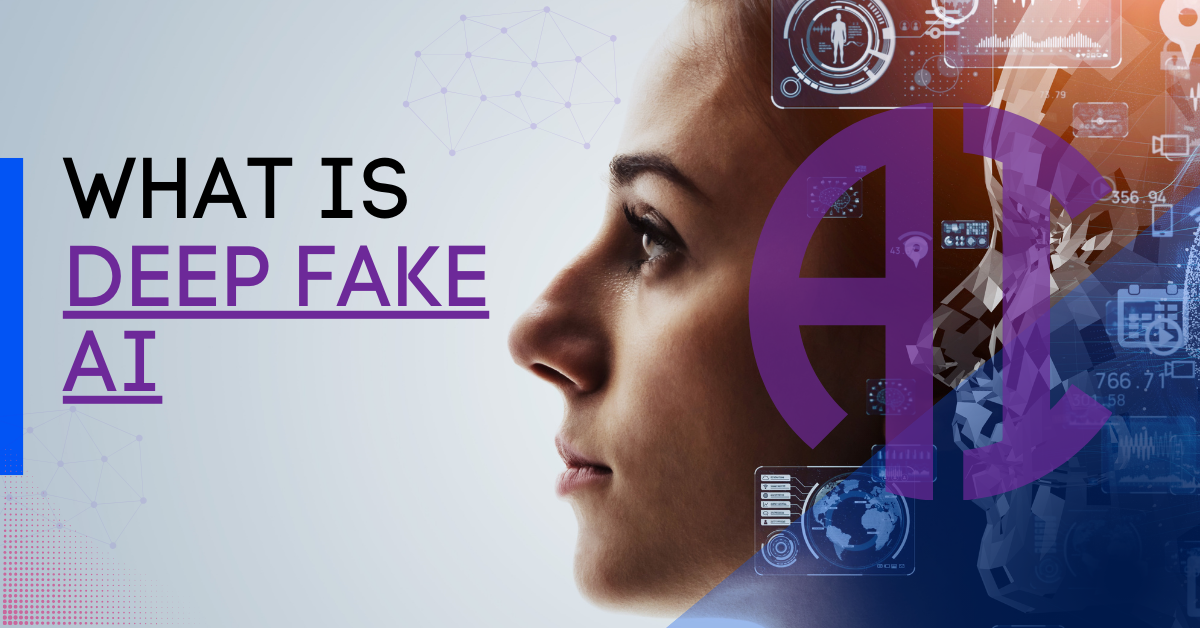Deepfake AI is a powerful technology designed to create or modify audio, images, and videos to show events, people, or statements that never actually happened. These alterations are often so realistic that they can be hard to tell apart from genuine content. Deepfake AI relies on advanced algorithms, like deep learning, which analyze vast amounts of data to generate convincing fake media. While it has some positive applications in areas like filmmaking and entertainment, it also raises significant concerns.
On one hand, deepfake AI can be a fun tool for creating entertaining content or enhancing special effects in movies. However, it also poses serious ethical, legal, and social challenges. For instance, it can be misused to spread false information, commit fraud, or invade people’s privacy. These risks highlight the need for careful regulation and responsible use of deepfake AI technology to prevent its harmful consequences.
Unmasking the Dual Nature of Deepfake AI
In recent years, the emergence of deepfake AI technology has sparked both fascination and concern across various sectors. This powerful tool, capable of creating highly realistic fake videos and audio recordings, carries immense potential for both good and harm. Let’s delve into the dual faces of deepfake AI and explore its wide-ranging effects on society.
The Dark Side of Deepfakes
Misinformation and Fake News
Deepfake technology has become a potent weapon in the arsenal of those seeking to spread misinformation and fake news. By crafting convincing videos of public figures saying or doing things they never actually did, malicious actors can manipulate public opinion and sow discord.
Political Manipulation
The use of deepfakes in politics is particularly alarming. By creating deceptive videos of politicians, deepfake AI can be exploited to influence elections, incite violence, and undermine democratic processes, posing a serious threat to the integrity of governance worldwide.
Fraud and Scams
Financial fraudsters have also embraced deepfake technology to perpetrate scams and frauds. By impersonating individuals or fabricating convincing audio and video recordings, criminals can deceive unsuspecting victims into divulging sensitive information or engaging in fraudulent transactions.
Legal and Ethical Concerns
The rapid advancement of Deepfake AI presents unprecedented legal and ethical challenges. Existing laws and regulations are ill-equipped to address the complex issues surrounding manipulated media, leaving individuals vulnerable to exploitation and abuse. As such, policymakers must grapple with how to balance the right to freedom of expression with the need to protect individuals’ privacy and security.
Extortion and Blackmail
The use of Deepfake AI for extortion and blackmail is a growing concern in the digital age. Perpetrators may threaten to release fabricated media unless their demands are met, leveraging individuals’ fears of reputational damage or personal harm. This form of digital extortion can have devastating consequences, coercing victims into compliance and perpetuating cycles of abuse.
The Bright Side of Deepfakes
Research and Development
The rise of deepfake technology has spurred research into detection methods designed to identify fake content. Utilizing AI and machine learning algorithms, researchers are developing tools to analyze videos and audio recordings for signs of manipulation, helping to combat the spread of deceptive content.
Entertainment and Media
Deepfake technology offers exciting possibilities in the entertainment industry. From creating realistic visual effects to dubbing actors’ voices in different languages, deepfakes can enhance the production value of films, television shows, and video games, opening up new creative avenues for artists and creators.
Ethical Dilemmas
The proliferation of deepfakes has prompted complex ethical debates surrounding consent, truth, and the authenticity of media. As society grapples with these challenges, it must confront questions about the ethical use of technology and the preservation of trust in media and institutions.
Conclusion
The impact of deepfake AI on society is multifaceted and far-reaching. While it offers exciting opportunities for entertainment and innovation, it also poses significant risks to privacy, security, and societal stability. As we navigate the evolving landscape of deepfake technology, it is crucial to remain vigilant, ethical, and proactive in addressing its potential harms while harnessing its positive potential for the greater good.




